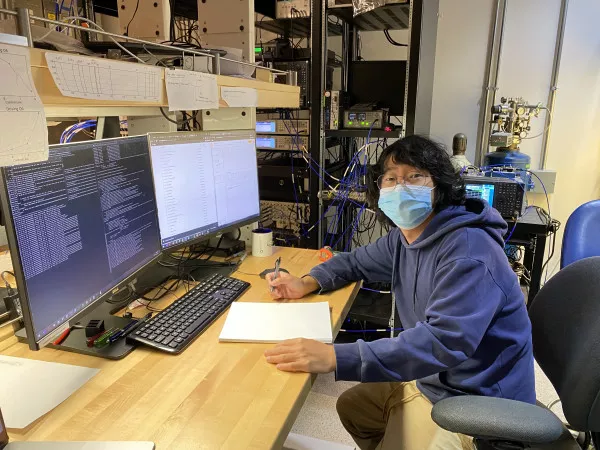The high fidelity quantum logic gate applied to qubits is the basic building block of programmable quantum circuits. Researchers from the advanced quantum test platform (AQT) of Lawrence Berkeley National Laboratory conducted the first experimental demonstration of three qubit high fidelity itofoli native gate in superconducting quantum information processor. The research results were recently published in nature physics.

Noisy medium-sized quantum processors usually support one or two qubit native gates, which can be implemented directly by hardware. More complex gates are realized by decomposing them into primitive gate sequences. The team's demonstration adds a novel and powerful native three qubit itofoli gate to general quantum computing. The fidelity of the gate is very high, reaching 98.26%.
Toffoli (also known as control control not gate, ccnot) is a key logic gate in classical computing. Because it is universal, it can build all logic circuits to calculate any required binary operation. In addition, it is reversible and allows the determination and recovery of binary inputs (bits) from the output, so no information is lost.
In a quantum circuit, the input qubits can be in the superposition of 0 and 1 states. Qubits are physically connected with other qubits in the circuit. With the increase of the number of qubits, it becomes more difficult to realize high fidelity quantum gates. The fewer quantum gates and shorter quantum circuits are required for computing operations, and the algorithm can be improved before the final result is wrong. Therefore, it is very important to reduce the complexity and running time of quantum gates.

Toffoli gate and Hadamard gate form a general set of quantum gates, which allows researchers to run any quantum algorithm. The experiments of multi qubit gate in the main computing technologies (superconducting circuit, trapped ions and Rydberg atom) have successfully proved that the fidelity of Toffoli gate on three qubit gate is between 87% and 90%. However, such demonstrations require researchers to decompose the Toffoli gate into one and two qubit gates, which makes the gate operation time longer and reduces its fidelity.
In order to create an easy to implement three qubit gate, AQT designs a non-traditional itofoli gate by applying synchronous microwave pulses fixed at the same frequency to three superconducting qubits in the linear chain.
Experiments show that, similar to Toffoli gate, this three qubit itofoli gate can be used to perform general quantum computation with high fidelity. In addition, the researchers found that the gate schematic on the superconducting quantum processor can generate additional three qubit gates, so as to provide more effective gate synthesis, so as to decompose the quantum gate into shorter gates to improve the circuit running time.

According to the researchers, "Due to decoherence, we know that longer and more complex gate sequences will damage fidelity, so the total gate operation time of executing an algorithm is very important. This demonstration proves that we can realize three qubit gates in one step and reduce the circuit depth of gate synthesis (the length of gate sequence). In addition, unlike previous methods, our gate scheme does not include higher excited states in which qubit is easy to decoherence, resulting in high fidelity gates.".